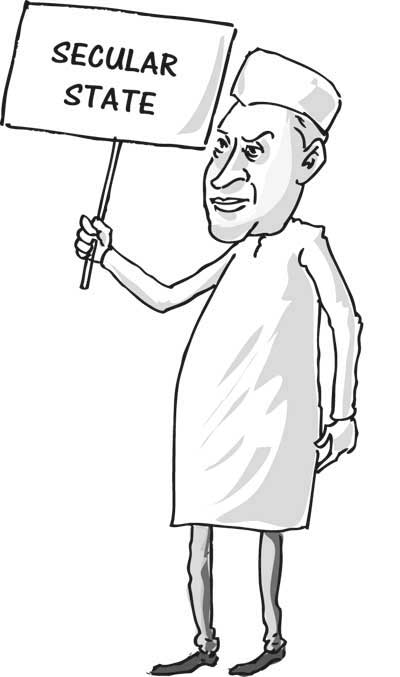Reply To:
Name - Reply Comment
Religion and politics formed the theme of a seminar held in Colombo this week by the South Asian Policy Research Institute (SAPRI) and the speakers from academic or intellectual circles in different countries gave deep reflections and perceptions on different dimensions of this important but often controversial topic.
The speakers referred to the concept of a secular state, especially the Jawaharlal Neru concept of secularism where the state had the right and the responsibility to intervene in vital social issues such as the crisis relating to the untouchable people, with the horrible discrimination, marginalisation or degradation of these people being constitutionally banned. Shri Nehru had a deep perception of Hinduism as a liberative philosophy, but many ritualistic Hindus still follow caste practices, though modern prophets such as Rabindranath Tagore have damned caste distinctions as a myth. Other speakers at the SAPRI seminar referred to religious states amid signs of the emergence of the first Al  Qaeda backed state known as ISIS, the Islamic state of Iraq and Syria where various parties are involved with hidden hands and hidden agendas that are turning West Asia into a hellhole.
Qaeda backed state known as ISIS, the Islamic state of Iraq and Syria where various parties are involved with hidden hands and hidden agendas that are turning West Asia into a hellhole.
The speakers reflected on religion being brought directly into politics with the politicisation of religion and religious extremism in politics. Others believed in the privatisation of religion, meaning that religion should be a private or personal conviction or commitment. While these views were highly intellectual and had much academic value in theory, we believe the answer lies in the practice of liberative spirituality. We need to be committed to the hallowed principle of inter-faith dialogue and unity in diversity where while we accept and practise our own beliefs, we need to have heart-felt respect for the beliefs of others. In this spirit of accommodation we could come to a win-win accommodation on the middle path where 1 plus 1 will make 3 and there would be something new.
To move towards this vision, the foundation needs to be inner liberative spirituality. In practice or practical terms, it means we need to be in an inner spiritual experience of liberation from our slavery to selfishness and self-centredness, greed and jealousy, bitterness and vengeance, and the desire for power, prestige, popularity and unbridled wealth. Without this gradual inner liberation where we willingly and voluntarily allow it to happen within ourselves, there is really no religion.